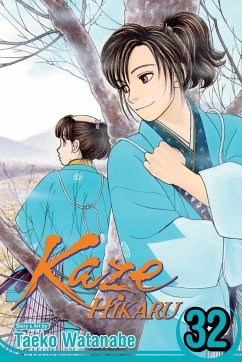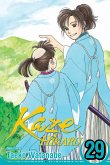Romance between "swordsmen," based on a true-life adventure of a young girl determined to be a part of history. In the 1860s in Japan, a new era is dawning. During this time fraught with violent social upheaval, samurai of all walks of life flock to Kyoto in the hope of joining a band of warriors united around their undying loyalty to the shogunate system. In time, this group would become one of the greatest (and most infamous) movements in Japanese history… the Shinsengumi! Posing as a man, Sei trains with the Shinsengumi and does her best to survive the turbulent times. Sei and her secret crush Soji watch as the Shinsengumi begins to crumble, while their former fellow member Saito leaves with the breakaway faction led by devious Councilor Ito. Meanwhile, just as Sei and Soji’s feelings for each other are deepening, it turns out an escort from Kyoto also has feelings for Soji!
Hinweis: Dieser Artikel kann nur an eine deutsche Lieferadresse ausgeliefert werden.
Hinweis: Dieser Artikel kann nur an eine deutsche Lieferadresse ausgeliefert werden.








